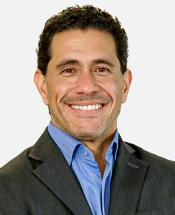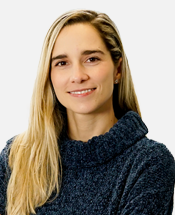Colombian Tax Office (DIAN) clarifies its interpretation on relevant issues regarding this topic
In brief
The Colombian Tax Office (DIAN) issued the Tax Ruling No. 305[008717] of 30 April 2024, interpreting several matters regarding the application of the Significant Economic Presence rules. The following are the most relevant points addressed by the Ruling:
- Cases in which the deduction for payments abroad related to SEP transactions are not capped under article 122 of the Tax Code.
- Identification of SEP taxpayers that have opted for the filing/no WHT mechanism and those who are not subject to the regime.
- Scope of the activities that can be considered taxed under SEP rules.
- Comments on the priority order rules of withholding agents.
Contents
- In which cases income tax withholdings (WHT) are not required as a deductibility requirement for SEP transactions performed between Colombian users/clients and foreign providers?
- How should a non-resident demonstrate that it is not subject to the SEP WHT?
- Which activities are included within the scope of the SEP rules, and which are not?
- When are financial institutions entitled not to withhold, and who should apply the WHT in those cases?
In which cases income tax withholdings (WHT) are not required as a deductibility requirement for SEP transactions performed between Colombian users/clients and foreign providers?
- DIAN explains the two exceptions that allow the withholding agent not to apply WHT under the SEP regime:
- When the non-resident is registered in the Unique Tax Registry – ((RUT) by its acronym in Spanish) as a SEP taxpayer, not subject to withholding tax.1
- When the non-resident submits a communication under oath, stating that it does not meet the SEP criteria.
- In any of these situations, the Colombian client/user will not be required to demonstrate the application of the 10% WHT and the expense will be fully deductible.
How should a non-resident demonstrate that it is not subject to the SEP WHT?
- In the case of registered taxpayers, it is necessary to submit a copy of the RUT to the Colombian clients, showing code 65, corresponding to “taxpayer with SEP in Colombia”. Under this code, it shows it is subject to the regime but not to the WHT mechanism.
- Non-residents who do not meet the SEP criteria, must submit a communication under oath, in which an authorized signatory states not meeting the corresponding requirements. Applicable legislation does not establish additional formalities for the validity of this communication.
- If Colombian customers/users do not have any of these documentary supports, and fails to withhold, the deduction of the payments performed will be limited to 15% of its net income, calculated before deducting such costs or deductions.
Which activities are included within the scope of the SEP rules, and which are not?
- It is clarified that the services of exploitation or leasing of real estate located in Colombia are taxed under ordinary income tax rules, and not under the SEP regime , if the activity is performed by the owner of the real state directly.
- The import of goods may be considered as a taxable SEP activity when it meets the requirements of gross income2 and deliberate and systematic interaction,3 and at least two of the location criteria set by the secondary legislation, such as:
- The domicile or where the client and/or user usually resides or lives is in Colombia.
- Payments are made through credit, debit or other types of cards or bonds or through any payment mechanism, located in Colombia.
- The credit or debit card through which the payment of the operation is made was issued in Colombia.
- The shipping address for the sale of goods is located in Colombia.
- The Internet Protocol (IP) address of the device used by the client and/or user is located in Colombia, at the time of performing the operation.
- The mobile country code (MCC) of the international identity of the mobile service subscriber stored on the SIM card (subscriber identity module) used by the client and/or user locates it in Colombia.
- The DIAN reaffirms that only services that can be categorized as “digital services”4 under the terms of the law and the regulations will be within the scope of the SEP rules.
When are financial institutions entitled not to withhold, and who should apply the WHT in those cases?
- In the event that the financial entities do not have the necessary information to apply the WHT, nor can they obtain it, the payment gateways will be in charge of making the withholding.
- However, the DIAN interprets that in such a situation, the financial entity must demonstrate that it does not have the information despite having requested it from the payment gateways and other parties related to the payment of the goods or services covered by SEP rules.
1 Code 122 must be included in the field 89 of the Tax Registration.
2 Obtaining 31.300 tax units from SEP activities with Colombian clients/users in the current or previous FY, equal to approximately USD 368.283 for 2024.
3 Conducting interactions with 300.000 or more clients/users located in Colombia; and/or showing prices or allowing to perform transactions in Colombian Pesos.
4 Those services provided through the Internet or an electronic network in an automated manner that require minimal human participation by the service provider and are impossible to guarantee in the absence of information technology.






